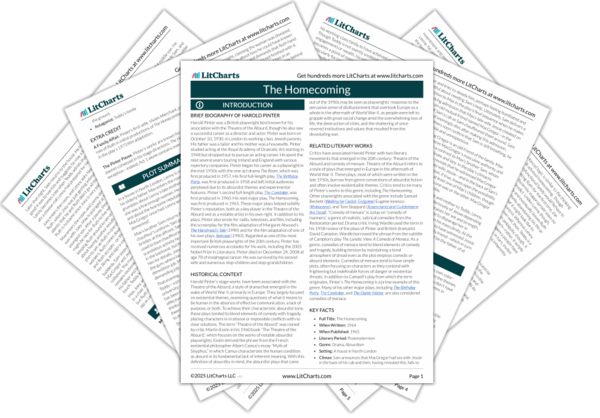Ruth has alternated between playing the part of the mother and the seductress, leveraging both roles to her advantage to gain control of the various absurd situations she has found herself in with her in-laws. Now, seated in a chair and with her in-laws gathered around her, she resumes the role of mother of this house, taking over the role Jessie left empty with her death. Her position relative to the men—she is seated at the center and looks down on them—solidifies her as the winner of the play’s long, absurd battle for control over the household. Max’s pathetic whimpering, which goes unanswered, makes clear that the house’s aged patriarch has fallen from power, replaced by the matriarch Ruth. Alternatively weaponizing her maternal warmth and seductive charm, Ruth has dominated the men who have attempted to dominate and belittle her. Perhaps ironically, she defies them without wandering beyond the constraints of gender norms.
